
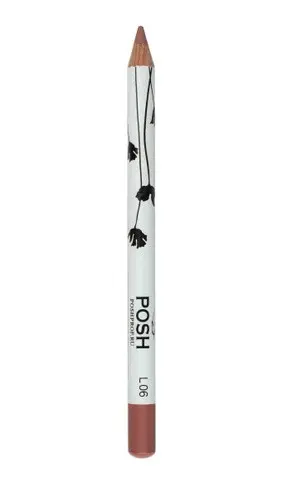
Crop rotation for all vegetable crops, including cucumbers, is one of the key points in modern horticulture. But even the choice of good predecessors and the alternation of plants in the garden are not always able to save our vegetables from poor fruiting and pests. Today we will talk about fertilizers for cucumbers in the greenhouse, such as green manure, which are crops planted specifically for use as fertilizers for cucumbers.
What is it
All the obvious benefits of cucumbers have long been known to experienced gardeners. But for all their benefits and good taste characteristics, cucumbers also have some features. Their root system is capable of releasing harmful substances. Which gradually accumulate in the ground and then harm crops planted in this area after cucumbers.
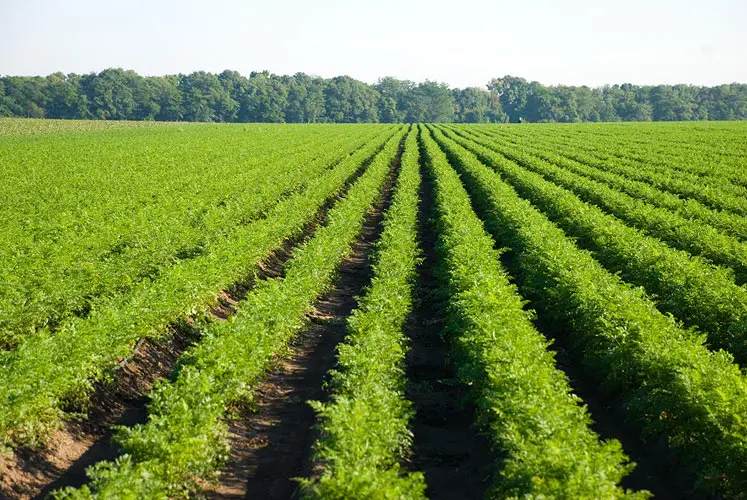
Along with the well-known recommendations to plant cucumbers again after about four years, today experts advise planting such green fertilizers as green manure in the greenhouse after harvesting. When planting vegetables in open ground conditions, crops such as white mustard and oil radish, which belong to the group of cruciferous and fast-growing plants, have proven themselves to be the best green manure crops.
Fertilizers for cucumbers in a greenhouse are somewhat different – most often these are cereals, represented by rye and oats, which tend to carry out good land improvement. Thanks to the cultivation of green manure, gardeners get an excellent opportunity not to completely change the soil in the greenhouse. It is also customary to grow such future green fertilizers, they are green manures, like legumes – peas, beans, clover, lupins. Such plants will allow you not to wait for several years to re-plant cucumbers, but will saturate the earth after harvesting vegetables with much-needed nitrogen and other useful substances. It is quite possible to sow green manure both in autumn and in early spring. The type of green fertilizer will depend on the choice of time of year. Under the condition of spring planting, it is best to give preference to such early ripening crops as mustard, oats, vetch, phacelia.
What are the
In simple terms, siderats have the property in a fairly short period of time not only to replenish the supply of useful microelements vital for the soil, but also to destroy the toxic secretions of cucumbers, as well as to loosen the soil.
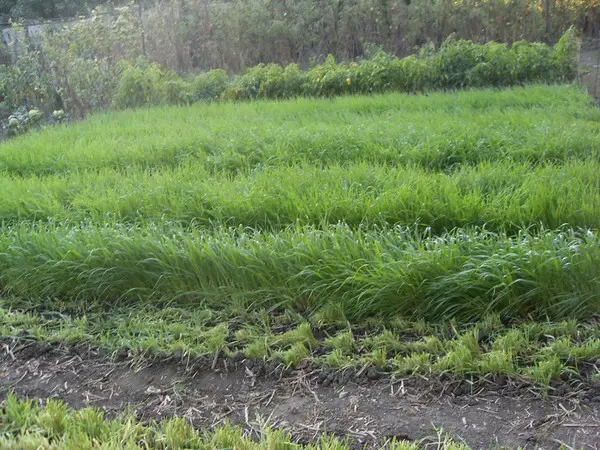
Why is it impossible to grow cucumbers in one place for several years in a row? Many useful substances are extracted from the soil, pathogens of infections also accumulate in the earth, and in the process of their growth and development, as mentioned above, cucumbers emit a lot of colins – harmful substances that are concentrated in the roots, stems and leaves of these wonderful vegetables .
The task of green manure, which today is quite capable of replacing the expensive and time-consuming procedure for the complete replacement of the land, is to neutralize the pathogenic microflora that had formed by the time the vegetables were harvested and to saturate the depleted land with the missing elements. Fertilization of the soil with the help of green manure experts call the natural mechanism for creating a new fertile layer of the earth. Since the plants themselves could provide themselves with everything they needed for years, grow, develop, die off, decompose, while enriching the soil with the substances necessary for the next generations.
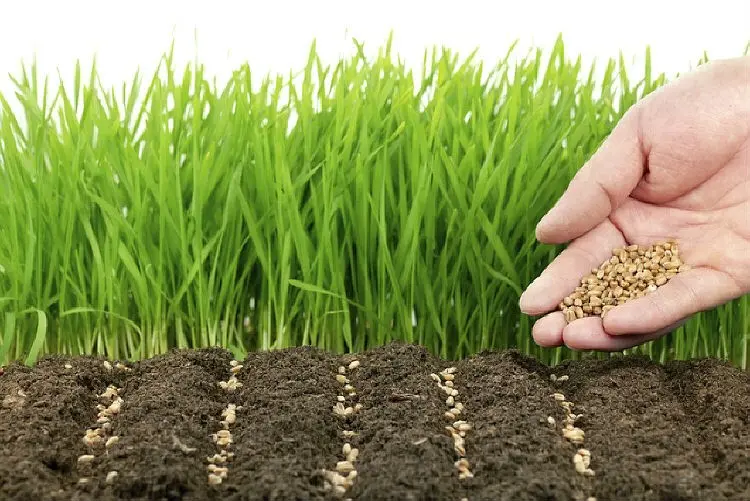
With proper green manure, the soil on the site can turn into a real ecosystem. And no mineral supplements you have introduced can so invigorate the overdried, hard, clayey and depleted soil after growing cucumbers. Green manure crops saturate the soil not only with organic matter and nitrogen, but also with calcium and phosphorus. Green fertilizers are familiar to the earth and stimulate the development of useful inhabitants of the site, as they create normal conditions for the life of small insects, bacteria, and worms. And the roots of plants used as green manure loosen the soil and improve its structure, increase the degree of moisture permeability, lower the acidity level, add useful substances from the deep layers of the soil to the upper one.
Also, these crops create a shadow on the soil, thereby serving as a reliable protection against overheating on hot days, and do not allow a large amount of moisture to evaporate. Autumn sideration protects the soil from excessive erosion by precipitation and blowing away by winds, can protect it from freezing, and also keep snow on the site for better soil saturation with moisture in spring. The last statement, of course, applies only to cucumbers grown in open ground.
Video “All about siderates”
How to apply
Today, it is customary to use plants belonging to three families as excellent siderates – legumes, cereals and cruciferous. From cereal gardeners prefer to take rye and oats, as already mentioned above. Rye in greenhouse conditions is best sown after harvesting, closer to September.
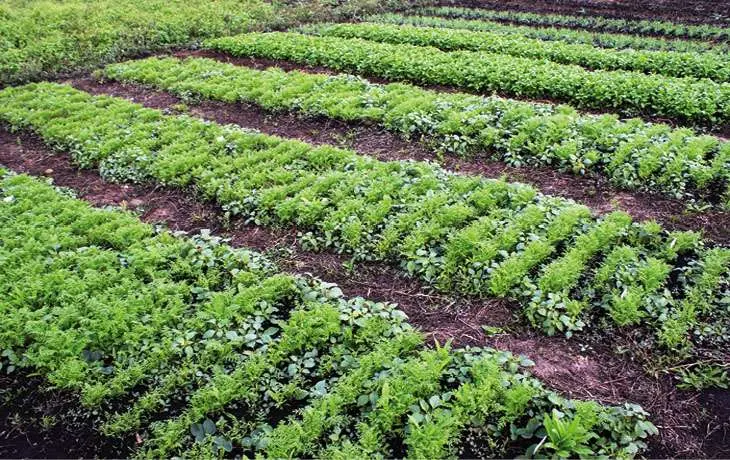
After the snow falls, the seedlings can be covered, although this is not a prerequisite.
In spring, rye is able to grow until the end of April, after which it will need to be mowed and used as mulch, or plowed into the ground not too deep.
Rye has the ability to well clear the land of unnecessary weeds, as well as heal it and saturate it with the necessary elements. Oats, and even more vetch-oat mixture, can give an excellent result. With a combination of these crops, the soil is not only enriched with nitrogen, phosphorus and potassium, but can also avoid nematode disease. Since the green mass grows quite quickly, it needs to be embedded in the ground after 30 days, and for better processing it should be shed with a solution of the EM preparation.
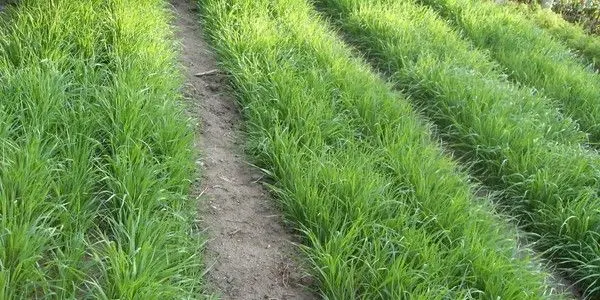
Also, mustard will be an excellent green fertilizer for the greenhouse. Its seeds need to be sown in a greenhouse in early March, you can do this at the end of February. At the same time, cucumbers should be planted without cutting the mustard, but simply forming holes in the middle of the carpet of its crops. Only in the case when the mustard grows above 20 – 30 cm, it will need to be mowed. Legumes are leaders in saturating the soil with nutrients, as they can absorb nitrogen directly from the air. They may not decontaminate the soil as well as cereals and cruciferous, but they will bring the right amount of vital nitrogen to it. Plants such as clover, annual lupine, peas, beans, beans have proven themselves in this matter.
Video “Green fertilizers”
Green manure is the basis of any agriculture. From the video you will learn how to properly handle them and what they are useful for.









